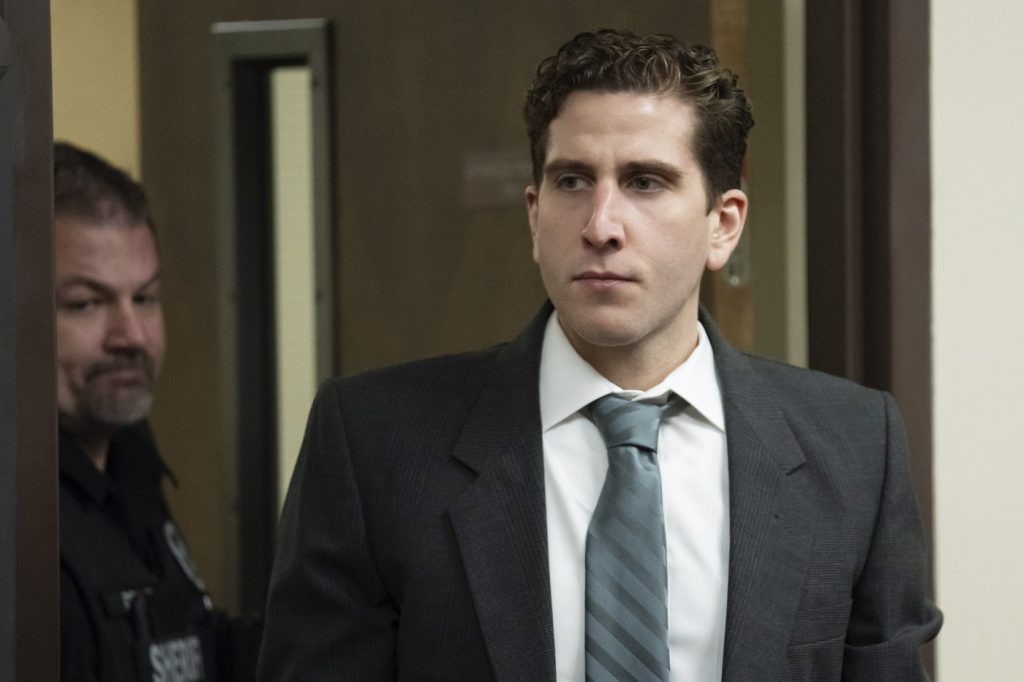BOISE, Idaho (AP) — Bryan Kohberger, the man accused of murdering four University of Idaho students in late 2022, is scheduled to attend his sentencing hearing on Wednesday, where he will confront the victims' families. The families hope to gain insight into Kohberger’s motives and his selection of the King Road rental home in Moscow as the crime scene. Kohberger, 30, is anticipated to receive life imprisonment sentences for the murders of Madison Mogen, Xana Kernodle, Kaylee Goncalves, and Ethan Chapin.
Kohberger pleaded guilty earlier this month as part of a plea deal that allowed him to avoid the death penalty. During the hearing, both Kohberger and the victims' family members will have the opportunity to speak. The fate of his plea deal was reached before a scheduled trial, which was set to take place next month.
The horrific incident occurred on November 13, 2022, shocking the city of Moscow, which had not experienced a homicide in approximately five years. Kohberger, a graduate student in criminology at nearby Washington State University, was arrested in Pennsylvania about six weeks later, following extensive police investigations.
Authorities utilized DNA evidence collected from a knife sheath found at the crime scene, which was linked to Kohberger through genetic genealogy. His movements were tracked using cellphone data and surveillance footage that captured a white sedan, identified as Kohberger's vehicle, driving past the victims’ residence multiple times on the night of the stabbings. Investigators also linked Kohberger to the crime through DNA recovered from a Q-tip in the garbage at his parents' home.
Kohberger’s attorneys requested to move the trial to Boise, citing concerns over finding unbiased jurors in the Moscow area. However, their pleas to remove the death penalty option and suppress key evidence, including the DNA information, were rejected by Judge Stephen Hippler.
In a significant turn of events, Kohberger’s guilty plea entailed an agreement that included a recommendation for four consecutive life sentences without the possibility of parole. Some families of the victims expressed divided opinions on the plea deal, highlighting the complexity and emotional weight of the situation.
Kohberger's motives remain largely unknown, as authorities have not publicly disclosed any reasons for the attacks. There is also a lingering question regarding why he spared two roommates who were present during the incident. Cellphone data indicated that Kohberger had frequented the area before the attack, suggesting premeditation.
Latah County Prosecutor Bill Thompson remarked that Kohberger appeared to use his knowledge of forensic investigations to eliminate evidence, including thoroughly cleaning his vehicle post-crime. Police investigations revealed Kohberger’s Amazon purchase history included a military-style knife, along with the sheath found at the scene; however, the actual knife was never recovered.
Given the extensive media attention surrounding the case, judges were concerned about the potential for publicity to influence Kohberger's right to a fair trial, leading to a gag order and the sealing of hundreds of court documents from public scrutiny. After Kohberger’s guilty plea, various news organizations, including the Associated Press, sought to lift the gag order and unseal court records. Judge Hippler has expressed agreement but noted that the process of unsealing documents will take time and will commence after the sentencing hearing.
The sentencing hearing may extend into Thursday, as multiple family and friend members will have the opportunity to speak about the impact of the killings on their lives. Kohberger, meanwhile, can either choose to speak during the hearing or decline to provide any further comments. While some, including former President Donald Trump, have called for Kohberger to explain his actions, the defendant has the legal right to remain silent.
In the wake of the tragedy, families and friends of the victims have worked to honor their memories by establishing charitable foundations and initiatives. "Ethan's Smile Foundation," created by Chapin’s family, aims to provide scholarships to support aspiring students. Similarly, the "Made With Kindness Foundation," established in memory of Mogen, Goncalves, and Kernodle, focuses on scholarships and initiatives that foster community and compassion. The University of Idaho has also created the "Vandal Healing Garden and Memorial" to commemorate all students who have passed while enrolled at the institution.












